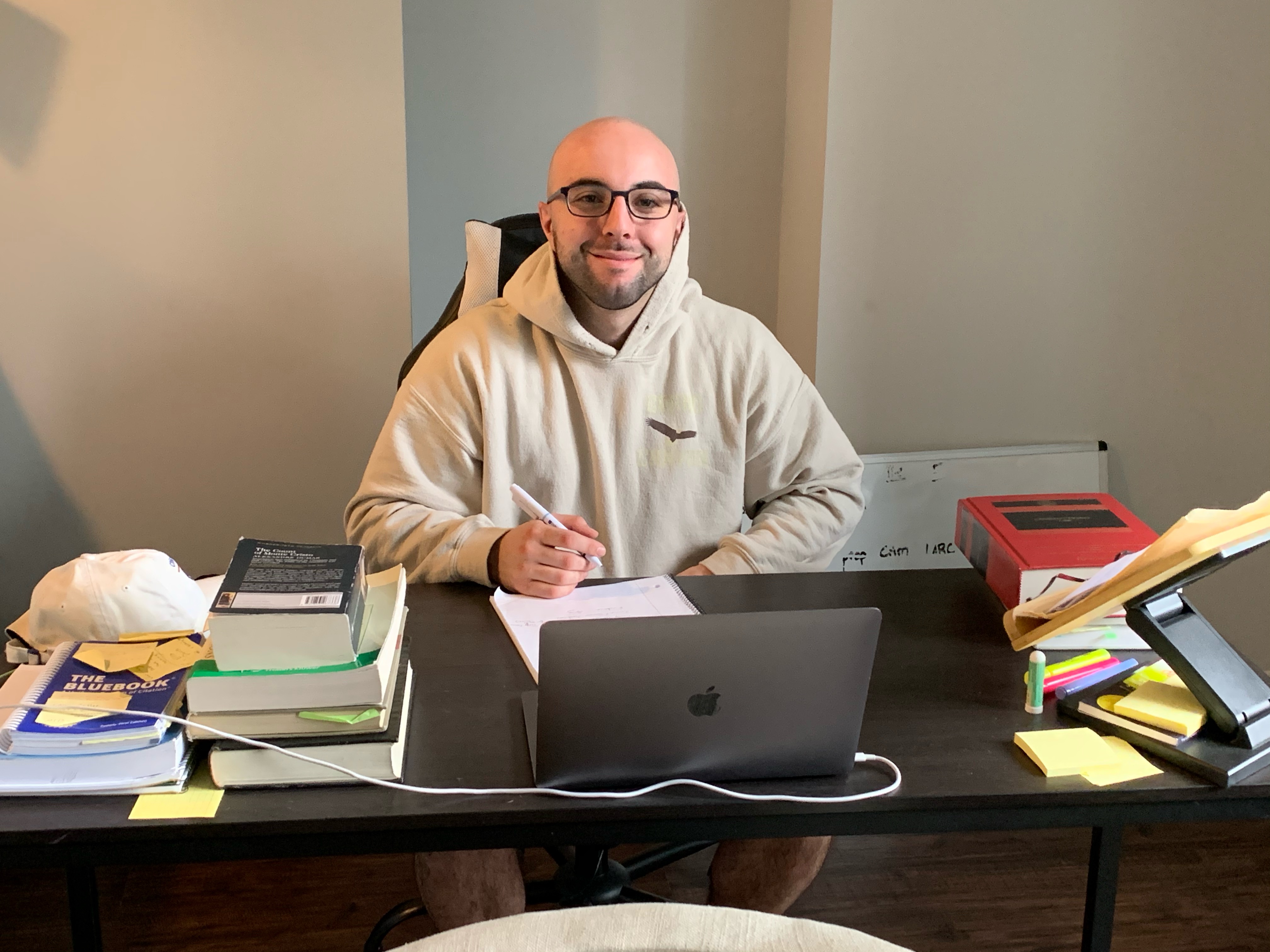Despite the myriad limitations still in place due to COVID-19, many DePaul law students dedicated their spring breaks to helping the wider community through remote service programs covering a variety of legal issues.
Through the Asylum & Immigration Law Clinic, four 1Ls partnered with ProBAR (the South Texas Pro Bono Asylum Representation Project) on immigration legal work. For 20 years, DePaul law students have traveled to the U.S./Mexico border in the Rio Grande Valley to provide legal assistance to detainees. Though no physical access to the facilities is currently allowed, students were still able to aid people remotely. Clinic Director Sioban Albiol explained that, “Students were able to see the impact of the Migration Protection Protocols (MPP), commonly referred to as the 'Remain in Mexico' program, on children and families seeking protection in the United States and to investigate DHS [Department of Homeland Security] violations of protections for children." She further praised the “range of exposure students receive by seeing the different roles lawyers can play in U.S. immigration policy and the direct effect it has on individuals, as well the opportunity to interview clients and analyze issues." Students also met with the advocacy group Angry Tias & Abuelas, attorneys from the ACLU and staff members from the Young Center for Immigrant Children's Rights.
Students acknowledged the importance of this program. According to SaDella Duval d'Adrian ('23), “the immigration clinic and ProBar allowed me to gain experience in litigation prep that most law students do not get during their first year." Joanna Janica ('23) said “my experience with ProBar reminded me of the importance of continuing to advocate for vulnerable immigrant populations, and I will strive to apply the lessons I learned during this service project to my future career as an immigration attorney." Parwaz Sra ('23) added, “It was a unique experience, since we were virtual, but Professor Albiol and ProBAR staff made it seamless, productive and worthwhile. It was a meaningful experience where I learned more about immigration law. I encourage students to apply for this [program] in the future."
 John Rosenfield ('23) spent spring break volunteering with LGBTQ+ seniors.
John Rosenfield ('23) spent spring break volunteering with LGBTQ+ seniors.DePaul Law's
Pro Bono & Community Service Initiative (PBSCI) also engaged in three different spring break projects. In partnership with the Center for Disability & Elder Law's Proud to Thrive Project and under the guidance of attorneys from Mayer Brown LLP and Astellas Pharma Inc., nine students helped LGBTQ seniors complete end-of-life documents, including living wills and powers of attorney. This was the first time PBSCI worked with LGBTQ seniors, and students received cultural competency training along with legal skills experience. Lauren Worsek, PBSCI director and assistant director of public interest law, recognizes that LGBTQ seniors are an underserved population and that there are many situations where people who have been in long-term relationships have no legal rights if a partner dies without a will, and this program could help protect their wishes. Student volunteer John Rosenfeld ('23) noted that, “DePaul gave me a week to connect with family, work on my mental well-being, and make a difference in the lives of our clients. Best spring break ever!"Five students joined Legal Aid Chicago to help more than 10 people apply for public benefits from the Illinois Department of Human Services. The need for public benefits has increased during the pandemic, and student Lauryn Woodward ('21) said about that experience: “Spending my spring break with Legal Aid Chicago was the highlight of the semester. Connecting with other students and the community through volunteering and direct service, despite the challenges of the last year, reinforces why I chose to pursue a legal degree."
Lastly, an initiative with First Defense Legal Aid allowed four students to perform legal research and writing to assist their clients. Participants investigated police misconduct litigation with a focus on the Monell doctrine (i.e., whether a municipality can be held liable for a police officer's actions) to assist the organization in their civil rights work. Courtney Barthelemy ('22) said, "It was a unique and inspiring experience to learn about the beginning stages of police misconduct cases. The experience highlighted the cruciality of complaint writing. A victim's entire case and right to relief can hinge on a well-written complaint. Researching and providing helpful tips for practicing lawyers to overcome a motion to dismiss allowed me to contribute to a victim's success."